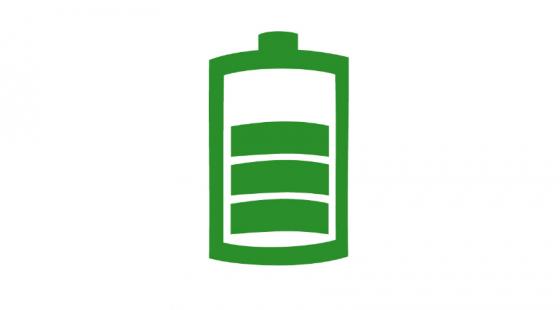One way or another, the going “green” initiative is taking over — homes, cars, manufacturing process — companies and individuals have been seeking alternatives to typical processes that can harm the environment. So why would the web be any different?
Researchers from Cockrell School of Engineering at The University of Texas at Austin have developed a new, open-source computer programming framework that could make the web more energy efficient and allow users to save battery power while browsing on mobile devices.

In order to maximize battery storage on mobile devices, electrical and computer engineering professor Vijay Janapa Reddi and graduate student Yuhao Zhu developed what they call the “GreenWeb,” a series of web programming language extensions that allow web developers more flexibility and control over the energy consumption of a website.
“Because user awareness is constantly increasing, web developers today must be conscious of energy efficiency,” said Janapa Reddi. “However, current web language standards provide developers little to no control over device energy use. We’ve taken an important step toward language-level research to enable energy-efficient mobile web computing.”
The researchers integrated the GreenWeb extensions into Google Chrome and reported energy savings of 30% to 66% compared to Android’s default mode. Since mobile device users spend almost two-thirds of their time browsing the web, that amount of energy savings could result in a 20% to 40% more battery life.
GreenWeb’s language extensions allow developers to express hints to the browser and as a result, conserves power when excessive computational horsepower is not necessary — allowing the web browser engine to save processor energy without sacrificing user experience.
The researchers also developed AutoGreen, an automatic tool within the GreenWeb framework to assist developers in automatically making webpages energy-friendly. The system continuously monitors hardware and browser execution behavior to better understand how to maximize energy efficiency during interactive usage.
If you’re wondering why going green on the web is so important, consider this. According to the researchers, poor energy behavior is a major reason that mobile users give negative app reviews, and 55% of mobile users say they would delete an app for heavy battery usage (information acquired from an independent survey by market research company Instantly). Websites and apps with high-energy requirements can also cause processor performance throttling, which can lead to slower webpage load times, resulting in lost traffic or consumers and lost revenue.
“Cavalierly sacrificing energy for performance is no longer an option. Webpages and apps are getting larger and increasing in complexity, putting more pressure on CPU and network resources for performance that draws power,” said Reddi.
The major challenge, the researchers say, is getting developers to implement the new technology. To them, GreenWeb is a starting point, but they want to encourage other web programmers to improve the tools and techniques.
The framework is available to the public at WattWiseWeb.org,
“We want WattWiseWeb.org to be a portal for discussions about energy and the web,” said Reddi. “We have developed a set of techniques as architects, but it is actually the community that will come up with the ultimate right set of solutions.”

Comments are closed, but trackbacks and pingbacks are open.